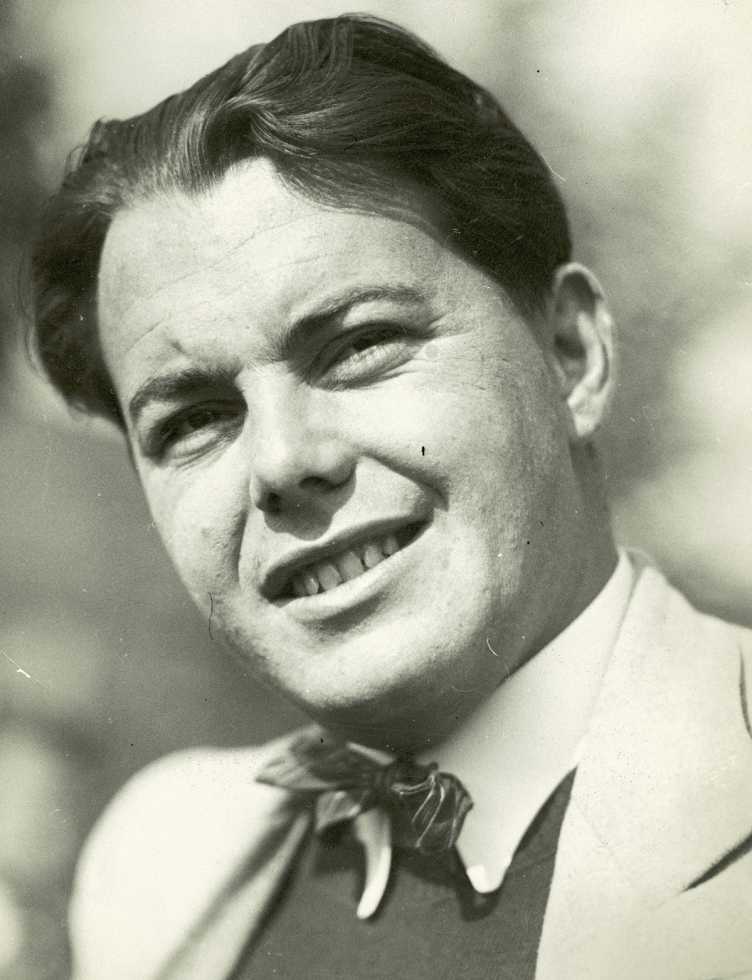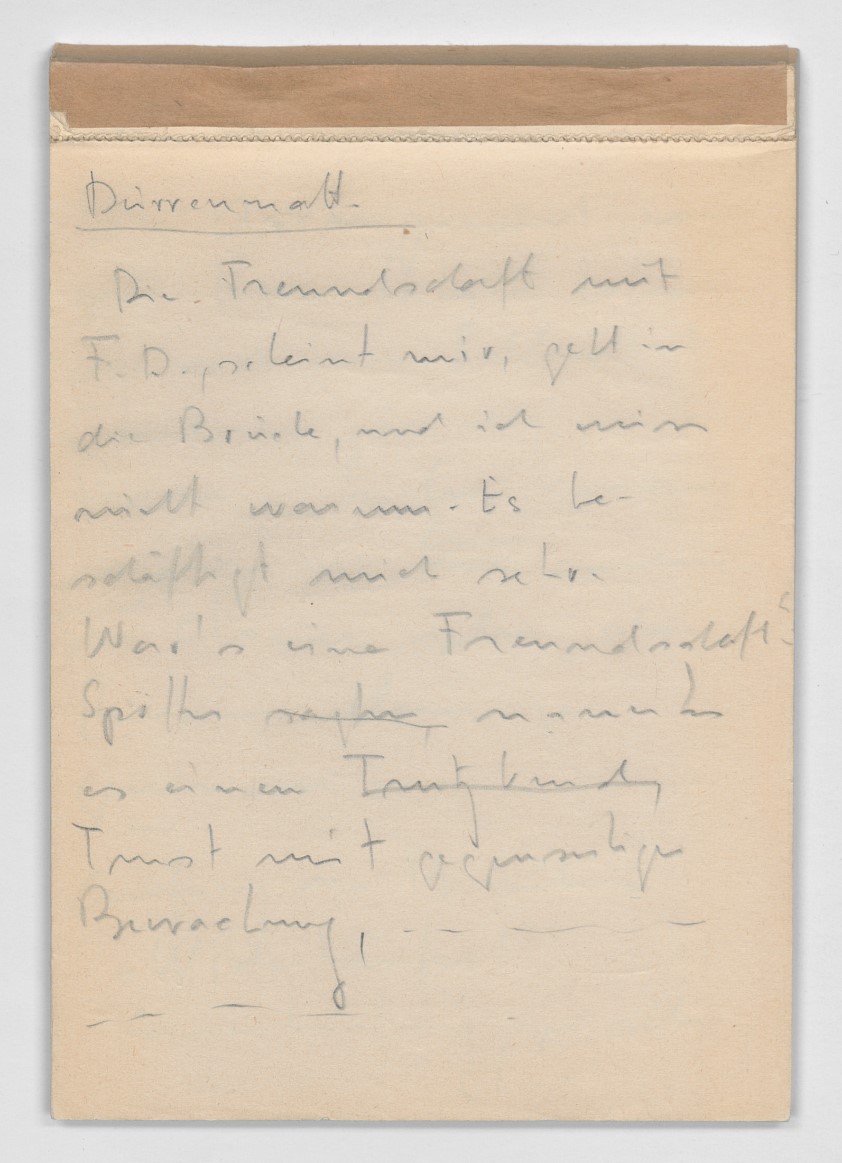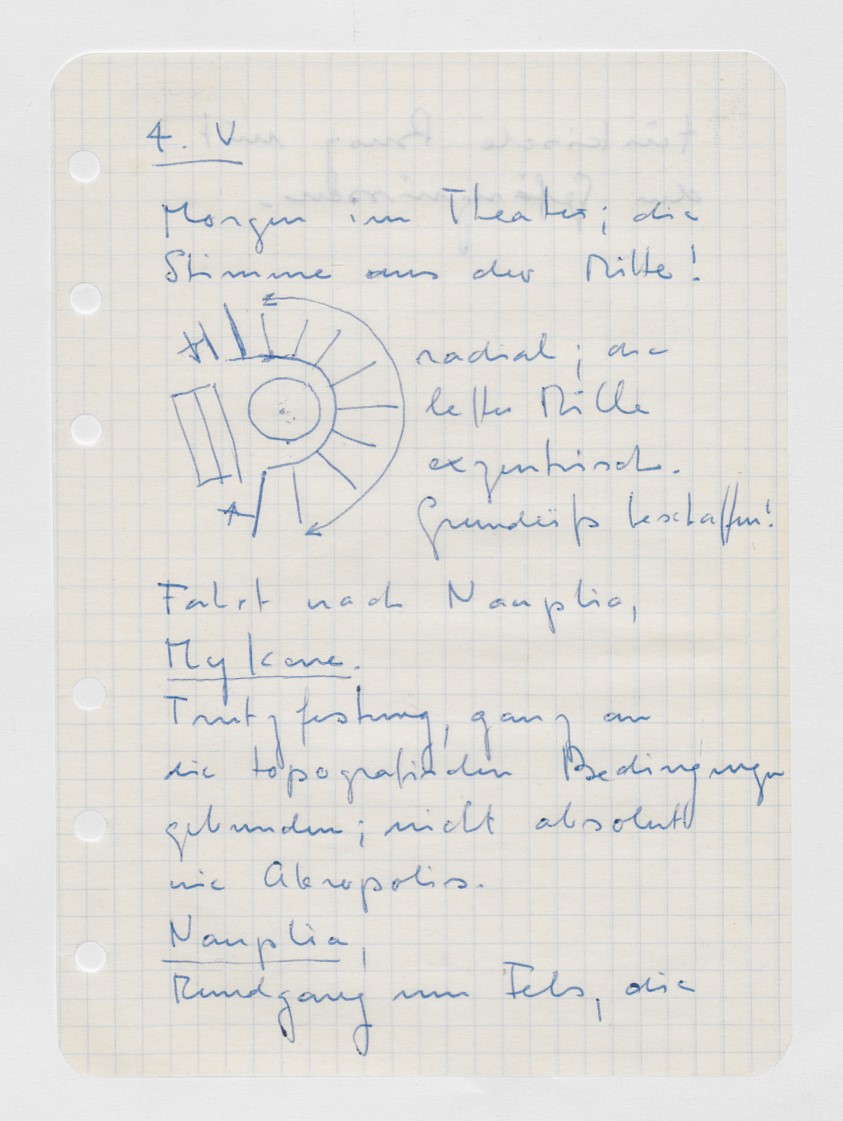Max Frisch (1911–1991)
Architect and author

Max Frisch was born in Zurich on 15 May 1911. His father was an architect and his mother had been a nanny in Russia as a young woman. He probably caught his lifelong travel bug from her. He grew up with his stepsister Emmy and older brother Franz, attending the Realgymnasium grammar school in Zurich from 1924 to 1930 before embarking on a German degree in Zurich.
When his father died suddenly in March 1932, leaving considerable debts behind, Frisch abandoned his degree and became a freelancer for the newspaper Neue Zürcher Zeitung. In early 1933 he travelled to Prague as a reporter to cover the ice hockey world championships.
Travel and architecture studies at ETH Zurich
He then spent eight months travelling through the Balkans and Greece, living off the proceeds from travel articles he wrote on the road. The confrontation with National Socialism in the 1930s rocked his apolitical world view. The uncertainty of his material existence and an unsuccessful novel (An Answer from Silence, 1937) prompted him to abandon his literary ambitions. A friend offered him the opportunity to study architecture at ETH Zurich from 1936 to 1940. After he won the competition to build the open-air swimming pool Letzibad in Zurich in 1942, he founded his own architecture firm and married Constance von Meyenburg. From 1951 to 1952, he received a grant from the Rockefeller Foundation in America. In the mid-1950s he sold his architecture firm and left his family.
Political commitment
In 1965 Frisch left Rome, where he had been living since 1960, including with Ingeborg Bachmann for a time, and moved to Berzona in the Onsernone Valley. He was married to Marianne Oellers from 1968 to 1979 and lived in Berlin and New York before settling back in Zurich once and for all in 1984. As a critical intellectual, Frisch was always actively engaged in the political events of the day in a variety of ways. By participating in the Congrès mondial des intellectuels pour la paix in Poland in 1948, bourgeois circles accused him of sympathising with communist ideals. The files that Switzerland’s state security kept on him for forty years form a stark contrast to the numerous accolades he won, including the Georg Büchner Prize (1958), the Literature Prize of the City of Zurich (1958) and the Peace Prize of the German Book Trade (1976). Max Frisch died in his flat at Stadelhoferstrasse 28 in Zurich on 4 April 1991.
Manuscript


Works
- 1934 "Jürg Reinhart"
- 1937 "An Answer from the Silence"
- 1940 "Blätter aus dem Brotsack"
- 1945 "Now They Are Singing Again"
- 1946 "Santa Cruz"
- 1946 "The Great Wall of China"
- 1949 "When the War Was Over"
- 1950 "Sketchbook 1946–1949"
- 1951 "Graf Öderland"
- 1953 "Don Juan, or the Love of Geometry"
- 1954 "Stiller"
- 1955 "achtung: Die Schweiz"
- 1957 "Homo faber"
- 1958 "The Fire Raisers"
- 1961 "Andorra"
- 1964 "Gantenbein"
- 1971 "Wilhelm Tell: a School Text"
- 1972 "Sketchbook 1966–1971"
- 1974 "Military Service Record"
- 1975 "Montauk"
- 1978 "Triptych"
- 1979 "Man in the Holocene"
- 1989 "Schweiz ohne Armee?"
Holdings
Max Frisch's complete literary personal papers are curated and rendered accessible by the Max Frisch Archive at the ETH Library.